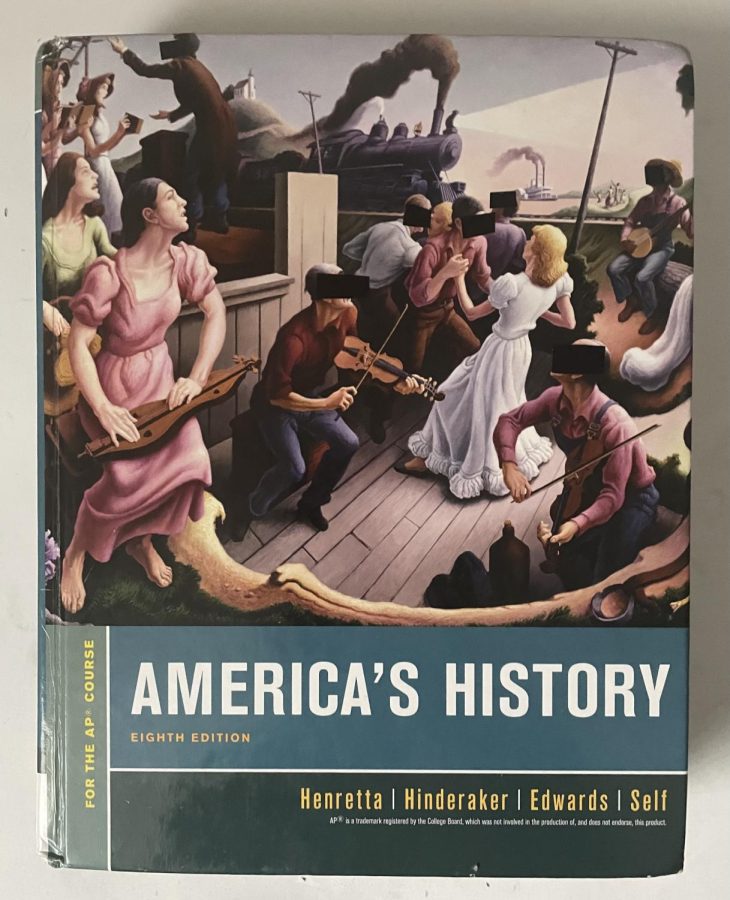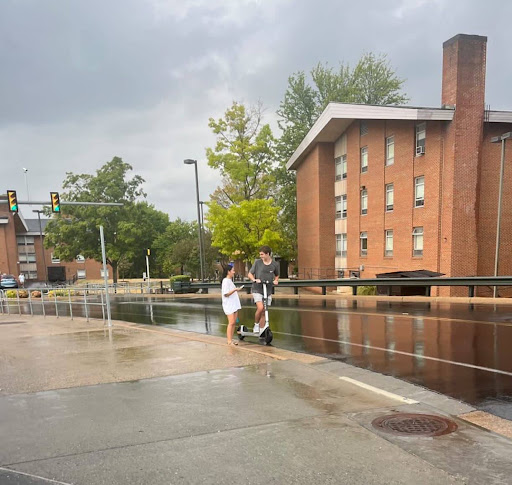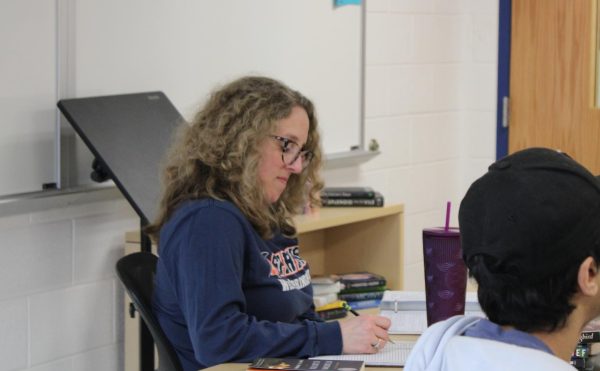Down with the patriarchy
New elective aims to reduce historical inequities
Photo courtesy of Robbie Kugler
A standard AP US History textbook cover censored to remove the prominent male figures. Of the more than 1500 historical figures listed in this textbook’s index, less than 15% are women. Although this marks a much larger percentage than the national average, that rate is far from equitable.
Returning students will have the opportunity to enroll in a Women’s History class next year. The elective intends to explore the historical impacts and achievements of those often left out of general history curriculums.
“One of the components that Fairfax County [Public Schools] has put forward that they’d like to do is for this course to promote advocacy for how women can be more included; [how] the voices, roles, experiences [of] women can be more included in the standard level curriculum because women’s history is history,” said teacher Joanne Pendry. “But we’re not gonna change things at the state level and so on by standards instantly, so this will be an opportunity to right the ship and find more opportunities.”
According to a study conducted in 2017 by the National Women’s History Museum, only five percent of all the people in history curriculums and textbooks are women. As such, focusing upon advocacy for women and creating awareness about women’s history is one of the central focuses for the class.
“I had never really thought about how little we talk about women in history until I watched the video on the academic advising site,” said junior Maura McCawley. “So I think it will be interesting to dive deeper into women’s history and look at the topic through a lens I haven’t seen before.”
The course will focus on historical roles and gender dynamics, as well as how women throughout history have been able to defy patriarchal societies and create powerful roles for themselves. Rather than having a strict, set curriculum, students will get input on who and what they will learn about. Class discussions, projects, and field trips will be used in place of traditional tests or quizzes, and any class homework will be minimal to nonexistent. The class does not come without its drawbacks, however, as there will be no GPA boost for grades and it cannot be counted as a history credit towards graduation requirements.
“I am bothered that this class doesn’t count as a history credit,” said McCawley. ”If Oceanography and Astronomy count towards the science requirement, I see no reason why Women’s History shouldn’t count towards the history requirement.”
Perhaps in the future the course will be expanded and eventually offered for full credit purposes, but for now, it is only an elective class. Women’s History will be available to all grade levels except rising freshmen, and, as with any new course approved for instruction by FCPS, its future depends upon garnering enough student enrollment. So, as the annual frenzy of academic advising begins to wane and National Women’s History Month draws closer, the importance of having a Women’s History course becomes all the more apparent.
“This is the first time in the secondary [school] level that, in my 28 years of teaching, this course has the possibility to be offered at a school that I teach [at], so I’m very excited,” said Pendry. “I’m a graduate of a women’s college and I think that it’s important. I’m hopeful that people will be as excited about it as I am, and will have the space in their schedules in order to take the class.”






